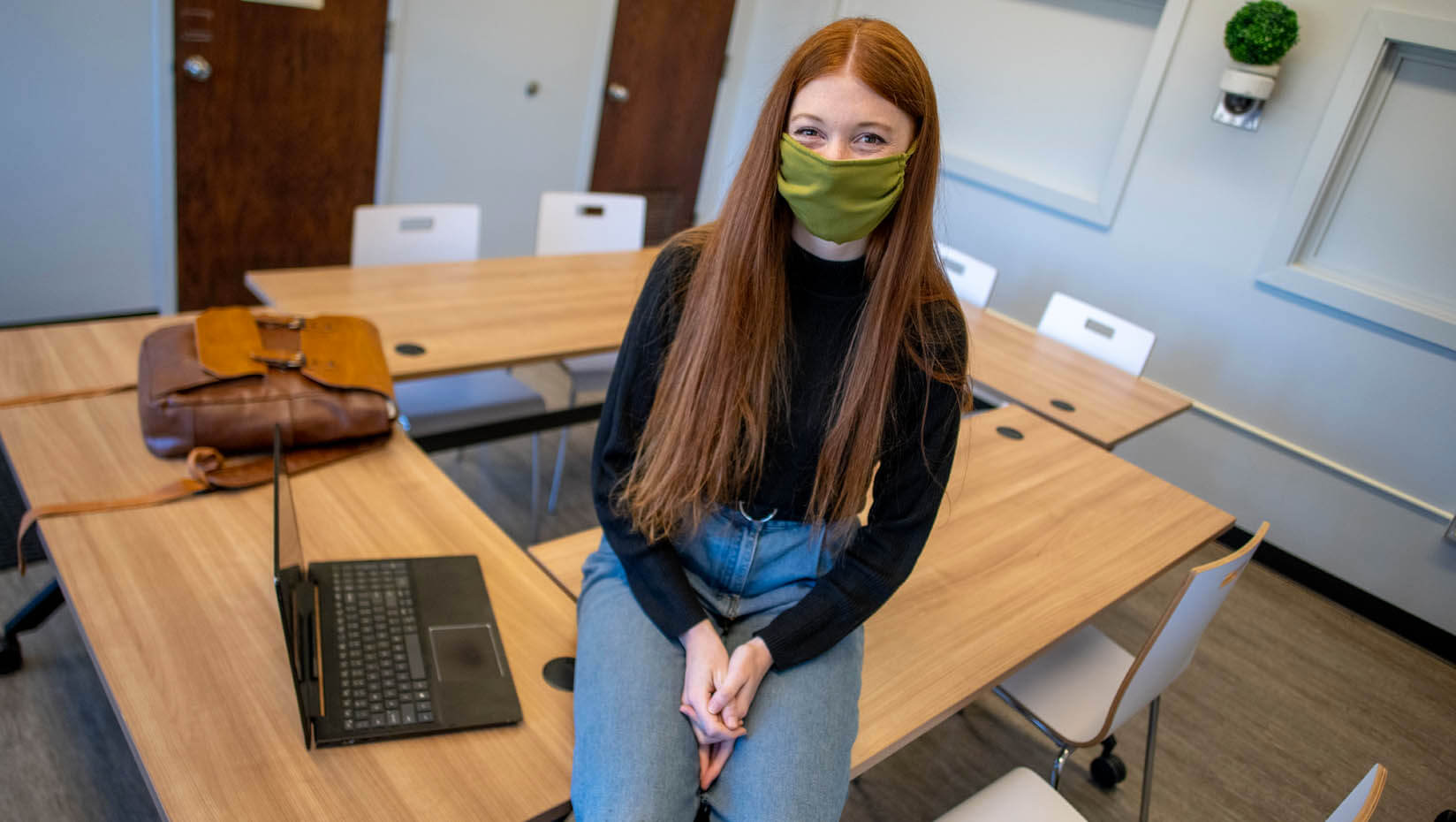
Stosic study links belief in science to mask-wearing during the pandemic
Individuals’ perceptions of science as a source of superior knowledge can predict the likelihood of mask wearing during the COVID-19 pandemic, according to a new study led by University of Maine psychology researchers.
Doctoral students Morgan Stosic and Shelby Helwig, and assistant professor Mollie Ruben examined whether belief in science (BIS), a construct that measures the value individuals assign to scientific information, can predict mask wearing behavior and, if so, whether the relationship is mediated by belief in the effectiveness of face masks in reducing the transmission of COVID-19. Their findings were published in the journal Personality and Individual Differences.
Study participants self-reported mask wearing behaviors, beliefs in the effectiveness of face masks in preventing the spread of coronavirus, the degree to which they valued science as a source of superior knowledge, and sociodemographic data.
Results show that greater BIS predicted stronger belief in the effectiveness of face masks in reducing the transmission of COVID-19 and greater reported face mask wearing in public. In addition, the study confirmed the mediating role of belief in the effectiveness of face masks in reducing the transmission of COVID-19 in this relationship. Greater BIS predicted greater belief in the effectiveness of face masks in reducing the transmission of COVID-19, which, in turn, predicted greater reported face mask wearing behavior in public.
Gender, age, race, ethnicity, region and political ideology were all significant predictors of face mask use, suggesting that men compared to women, white individuals compared to Black individuals, non-Hispanic individuals compared to Hispanic or Latino individuals, those in rural and suburban areas compared to urban areas, and more politically conservative individuals may benefit from targeted public health messaging about the advantages of wearing face masks and, more broadly, about the importance of science.
Stosic, the paper’s first author, received a 2021 National Science Foundation (NSF) Graduate Research Fellowships Program award to support her doctoral research exploring the accuracy of perceptions of personality and emotional states when interactions are limited to video conferencing platforms. The goal of these investigations is to develop tailored training that fosters accurate perception skills among interviewers, healthcare providers and other professionals. She is one of three NSF graduate fellowship recipients from UMaine this year, joining Ph.D. students Madeleine Landrum and Zander Roman.
Contact: Joan Perkins, joan.perkins@maine.edu
